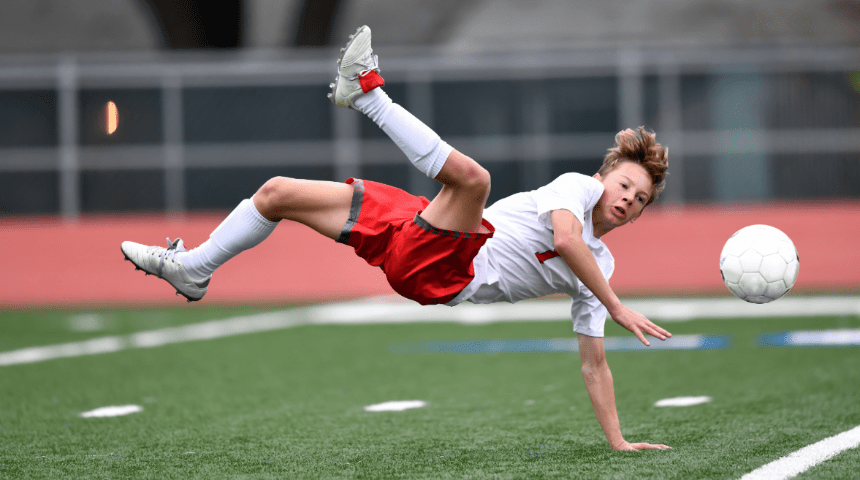Imagine you’re out walking the dog and it spots a squirrel just before yanking you off your feet. Breaking the fall with an outstretched arm, you feel a jarring pain in your shoulder and arm. Two days later, the pain has not gotten any better. And you can’t raise your arm over your head without discomfort. Every year, two to four million people in the United States suffer rotator cuff injuries like this.
Minor strains may cause only mild pain and stiffness. But severe tears are typically more painful and are accompanied by marked shoulder weakness. These injuries can make it difficult to do simple daily tasks like getting dressed or brushing your teeth.
The rotator cuff is made up of four tendons that attach muscles from your shoulder blade to your upper arm bone. These muscles and tendons help rotate the arm and are heavily used in sports and other activities.
Rotator cuff injuries are broken into two groups:
-
Partial tear, which damages but does not completely rip the tendon
-
Complete tear, where the tendon is torn from the bone of the upper arm (humerus)
What Causes Rotator Cuff Injuries?
Rotator cuff injuries commonly occur in patients who:
-
Lift heavy weights or objects
-
Engage in heavy labor
-
Suffer from accidental trips or falls
-
Do work or activities involving repetitive motions, such as raking leaves or playing tennis
If a tear occurs, you may feel a dull ache or pain in the arm around the deltoid area. The pain will be most acute when you move your shoulder. This radiating arm discomfort is common because the axillary nerve sits right under the deltoid muscle.
If the front rotator cuff tendon is torn, the biceps tendon can “jump” out of its normal home in the biceps groove, causing sharp pain in the front of the shoulder from that instability.
After a fall, your shoulder may become sore, bruised, or weak. The inability to raise your arm over your head without severe pain is another symptom. If things don’t improve after a few days, it’s time to see a doctor.
Treatment Options
With minor rotator cuff injuries, you may need nothing more than rest, ice and oral analgesics like acetaminophen. Gentle stretching can help avoid a “frozen” shoulder, where stiffness and pain combine to make it difficult to move. Using a sling for a day or two can also provide relief. But using one for too long can cause stiffness to set in and limit range of motion.
When treatment options are considered, age is a significant factor. For younger patients (or older patients who act young), surgery is more likely — especially for acute tears. The goal is to reattach the tendon to the bone and is often done through minimally invasive arthroscopic surgery, using small incisions and a camera. Many of the orthopedic surgeons at the Orlando Health Jewett Orthopedic Institute use this technique.
For older patients and those who are less active, exercise and stretching can be the best way to restore function and decrease pain. For these patients, doctors may recommend several weeks of physical therapy.
For more serious and chronic injuries, surgery is often needed. The type of surgery you need will depend on the rotator cuff injury you have and how long the tendon has been torn. These decisions will be made after a careful exploration of the patient’s history, physical exam and review of x-rays and an MRI.
Keeping Your Shoulders Safe
There are things you can do to protect your shoulders from injury, many revolving around avoiding unexpected falls:
-
Be careful when getting into and out of the shower.
-
Use handrails when going up or down stairs.
-
Wear slip-resistant shoes or sandals.
-
Be careful when there are wet walkways or cold weather that could create icy surfaces.
-
Remove tripping hazards such as loose rugs.
-
Use a walker or cane for stability.
-
Pay close attention when walking a dog. Sudden pulls or abrupt changes of direction can cause a fall.
Other risk-reducing tips include:
-
Wear well-fitting shoes to support your joints.
-
Gentle stretching and progressive weight-bearing exercises can build shoulder strength.
-
Use caution with overhead activities, such as tree-trimming or painting.
-
Avoid heavy weightlifting – especially shoulder presses – if you’re not properly trained.
If you have rested your shoulder, applied ice and heat and given the injury a week to heal and are still feeling pain or have lost range of motion, see a doctor. A physical exam and imaging will determine severity of your injury and the next steps in your recovery.
Choose to Stay in Touch
Sign up to receive the latest health news and trends, wellness & prevention tips, and much more from Orlando Health.
Sign Up





